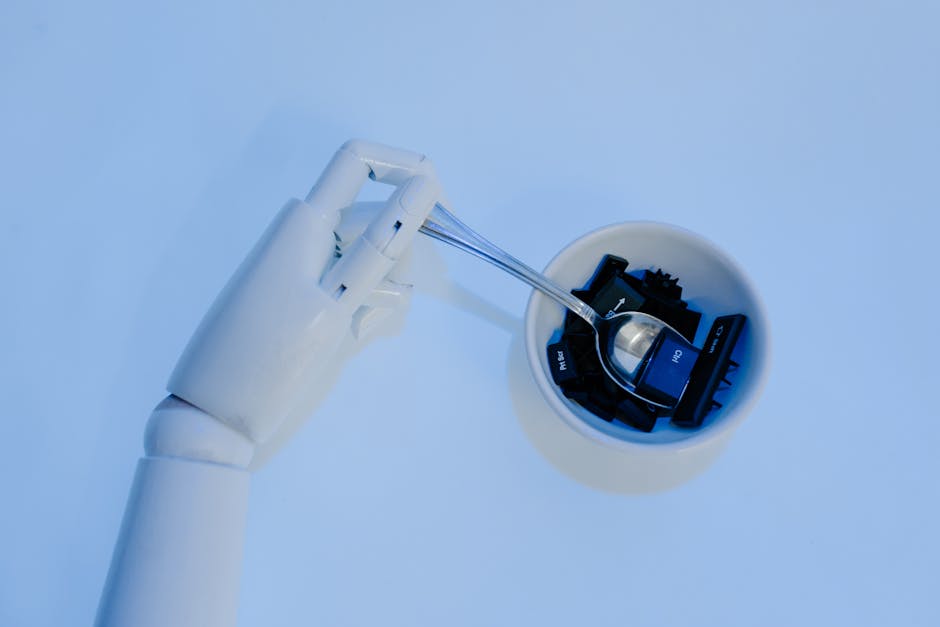No products in the cart.
Revolutionizing Hospitality: The Future Workforce in an AI-Driven Era
AI is set to redefine hospitality careers, from guest services to smart rooms. Discover the future of work in this evolving industry.
Las Vegas, USA — The neon-lit skyline of Las Vegas is not just a playground of entertainment; it’s a canvas for the future of hospitality. As technology marches forward, artificial intelligence (AI) is emerging as a game-changer in this vibrant industry, promising to redefine guest experiences and the workforce behind them.
Imagine checking into a hotel where your every need is anticipated by a friendly chatbot, or where your room adjusts its temperature and lighting to your preferences as you step inside. This isn’t the stuff of science fiction; it’s the reality that the hospitality industry is rapidly approaching. Hotels and resorts worldwide are integrating AI technologies to streamline operations, enhance customer service, and create personalized experiences that keep guests coming back.

But what does this mean for the workforce? As AI tools, such as chatbots and smart room technology, take on more responsibilities, the nature of hospitality jobs is evolving. On one hand, this shift can lead to increased efficiency and improved service quality; on the other, it raises concerns about job displacement. Will the workforce adapt, or will it find itself left behind?
The hospitality industry is no stranger to innovation. From the introduction of online booking platforms to the rise of mobile check-ins, change has been a constant companion. However, the pace of AI adoption is unprecedented. According to a report by McKinsey, automation could replace up to 30% of jobs in the hospitality sector within the next decade, particularly in roles focused on routine tasks like check-in and customer inquiries[1].
Yet, not all AI implementations spell doom for hospitality workers.
Yet, not all AI implementations spell doom for hospitality workers. Some experts argue that AI can augment rather than replace human roles. “Technology should be seen as a tool to enhance the human touch, not as a replacement for it,” says Dr. Emily Chen, a hospitality technology researcher at Cornell University. “AI can handle the mundane tasks, allowing staff to focus on what they do best: creating memorable experiences for guests”[2].
Take the example of Marriott International, which has embraced AI to optimize its operations. The company uses AI-driven chatbots to handle booking inquiries, freeing up human employees to engage more deeply with guests. This approach not only improves efficiency but also enhances the overall guest experience. As the workforce adapts to these new tools, employees are finding themselves taking on more specialized, higher-value roles.
However, the transition is not without its challenges. The hospitality industry is characterized by a diverse workforce, with employees from various backgrounds and skill levels. For many workers, particularly those in entry-level positions, adapting to new technologies can be daunting. This is where training and upskilling become essential. Employers must invest in comprehensive training programs that equip their staff with the skills needed to thrive in an AI-enhanced environment.
Moreover, the impact of AI on the workplace culture cannot be overlooked. As machines take over certain tasks, the dynamics between employees and technology will change. Workers might experience anxiety about job security, leading to a shift in morale. Businesses must foster a culture of innovation and resilience, emphasizing that AI is a partner in delivering exceptional service, not a competitor.
Looking ahead, the future of hospitality will likely see a hybrid workforce, where humans and machines coexist and collaborate. The roles of hotel staff may evolve from traditional functions to more strategic positions that leverage emotional intelligence, critical thinking, and creativity—skills that AI cannot replicate. The hospitality workers of tomorrow will need to embrace lifelong learning, continuously adapting to the changing landscape.
Employers must invest in comprehensive training programs that equip their staff with the skills needed to thrive in an AI-enhanced environment.
As we stand on the brink of this new era, one thing is clear: the integration of AI in hospitality is not just a trend; it’s a revolution. For young professionals entering the workforce, this is both a challenge and an opportunity. By embracing technology and honing their unique human skills, they can position themselves as indispensable assets in a rapidly changing industry. The hotels of the future may be smart, but it will be the human touch that keeps guests returning.











